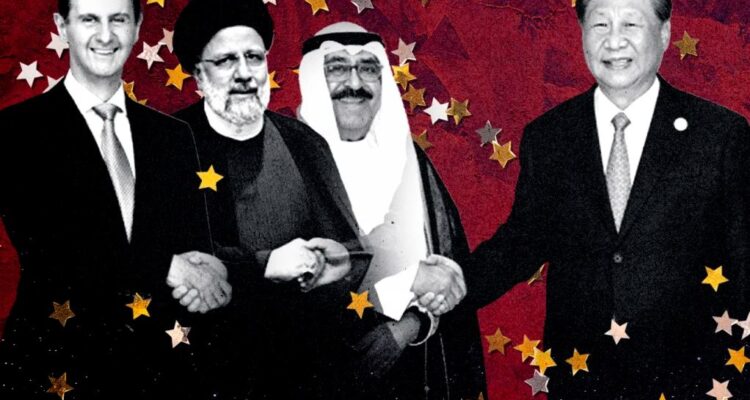It was mid-August and Wang Yi was feeling optimistic. The Chinese foreign minister had just had a phone call with Hossein Amir-Abdollahian, Iran’s foreign minister, where he told him he believed a “wave of reconciliation” was washing over the Middle East.
China had brokered a peace deal between decade-long rivals Iran and Saudi Arabia, Palestinian Authority President Mahmoud Abbas had finished a four-day state visit to Beijing, and in Israel, Prime Minister Benjamin Netanyahu had been gifted a copy of Chinese President Xi Jinping’s book.
“We are friends closer than brothers,” Palestinian Fatah Central Committee official Abbas Zaki told Chinese state media. Netanyahu had told US officials he had begun planning a trip to Beijing this year.
Now as the Palestinian terrorist group Hamas fires barrages of rockets into Israel from the Gaza Strip, kidnaps and murders Israelis, and Israel declares war, no other country can claim to have stable relations with the two sides and with their influential neighbours Syria, Saudi Arabia and Iran.
Beijing has spent years building up goodwill in the region. COVID-19 provided the perfect platform to deliver millions of vaccines across the Middle East, including to Kuwait and the United Arab Emirates. Then the US withdrew from Afghanistan and shifted its attention to the Asia Pacific and Russia.
“Nature abhors a vacuum,” Dr Benjamin Ho from the S. Rajaratnam School of International Studies told Carnegie Global Dialogue Series. “The very fact that the United States was perceived to have left the Middle East allowed China to put its foot in.”
Read the article by Eryk Bagshaw in WA Today.

